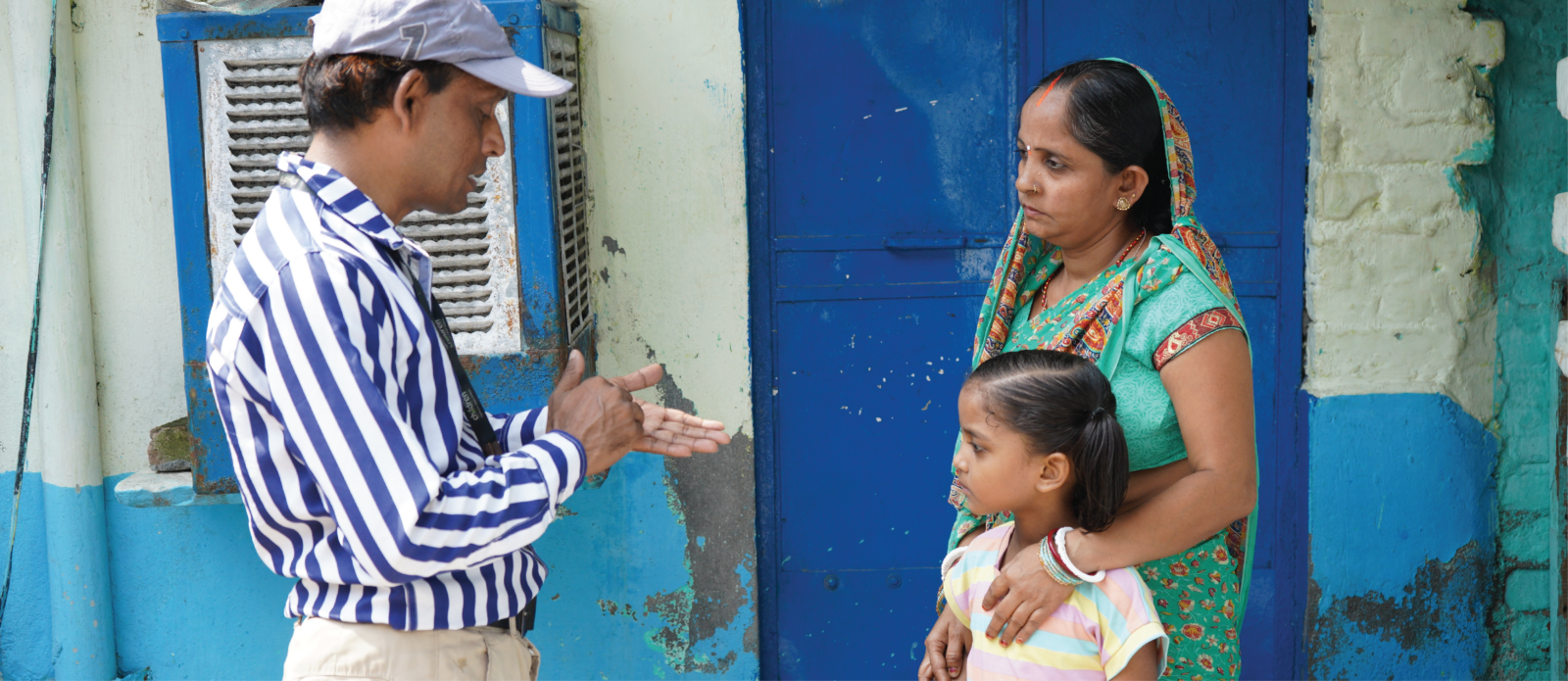For many children, visiting a dentist’s clinic is routine, but for those growing up in slum communities, such care feels like a distant dream. When parents are preoccupied with earning a daily meal, the early signs of a child’s poor health—whether they begin with complaints of blurry vision or masked fatigue—are often overlooked.
Poor health for children is more than discomfort; it means missed school days, stunted growth, and diminished chances to thrive. For families, untreated illnesses deepen financial stress and reinforce cycles of poverty. Recognizing this, and in line with SDG 3: Good Health and Well-Being, Railway Children India brings healthcare into the heart of vulnerable communities through regular health camps.
Preventive Care Through Health Camps
Railway Children India regularly organizes health camps to bring medical care right into six of Delhi’s slum communities, where families often lack access or the means to seek help. These camps are designed not only for treatment but also for screening, prevention, and awareness.
These camps are held in collaboration with partners such as the Indian Medical Association (IMA) and the District Legal Service Authority (DLSA), who not only provide medical expertise but also help families enrol in government health schemes like the Ayushman Bharat Health Account (ABHA). This way, children and families are not only treated for immediate concerns but also linked to India’s broader healthcare safety net.
Over the past months, these health camps have taken many forms—each designed to respond to the unique needs of the communities. In Kishanganj, 52 adolescent girls were vaccinated against the Human Papillomavirus (HPV), protecting them from cervical cancer and safeguarding their long-term health. In Tulsi Nagar, more than 240 children and adults underwent screenings for blood pressure, sugar, ECG, and vision, with many receiving eyeglasses and essential medicines that would otherwise be out of reach. And in Darbhanga, 143 people—many for the very first time—were able to consult a doctor without the burden of financial worry, walking away with free consultations and medicines.
Caring for Children’s Health First
Children rescued from railway stations and bus terminals often arrive with urgent medical needs such as untreated infections, injuries, or signs of malnutrition. Following protocol, they are immediately taken to a nearby public hospital for a medical check-up, ensuring that their primary health concerns are addressed without delay. This immediate response lays the foundation for their recovery and well-being.
Building Healthy Habits
Health care for children is not just about curing illnesses, but also about nurturing active, balanced lifestyles. At RCI, routine Karate training sessions keep children physically strong, disciplined, and confident, while occasional Yoga camps introduce practices that support flexibility, mindfulness, and emotional well-being. These activities help children channel their energy positively and strengthen both body and mind, making health a daily practice rather than a one-time intervention.
Healing the Invisible Wounds
But health is more than the absence of illness. Many children carry unseen scars from trauma, abuse, or neglect. For them, healing must begin gently. As part of our family reintegration model, our case workers often walk alongside parents, explaining processes, encouraging openness, and ensuring that no child feels alone—as in the case of young Pranit*, whose recovery was made possible through consistent counselling and family support. By acknowledging mental health as integral to overall well-being, we align with the spirit of SDG 3, ensuring that recovery is not only physical but also emotional and holistic.
Strengthening Families, Protecting Children
A child’s health is closely linked to their family’s circumstances. Health emergencies often deepen vulnerabilities in households, increasing risks for children. That’s why RCI incorporates family-centered healthcare into its approach by offering free medicines and checkups for adults at community health camps, issuing health cards that provide long-term access to government schemes, and conducting awareness sessions on nutrition, sanitation, and preventive care to empower parents. By strengthening families, we build a stronger safety net for every child.
At RCI, health is not just a service—it is a bridge to resilience, empowerment, and brighter futures.





